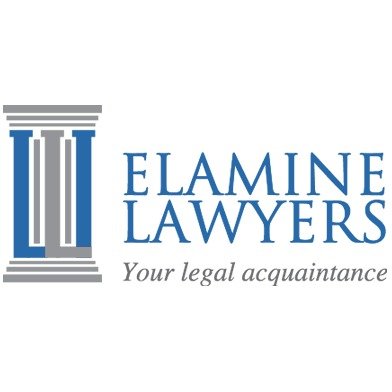Best Oil, Gas & Energy Lawyers in Melbourne
Share your needs with us, get contacted by law firms.
Free. Takes 2 min.
List of the best lawyers in Melbourne, Australia
About Oil, Gas & Energy Law in Melbourne, Australia
The Oil, Gas & Energy sector in Melbourne, Australia, is a critical component of the country's economy and energy maintenance. It encompasses exploration, production, refining, distribution, and sale of oil and gas. Australia is rich in energy resources, including traditional fossil fuels and increasingly in renewable energy sources. Melbourne serves as a hub for these activities due to its strategic location and developed infrastructure, making it an important center for the energy sector. Energy law in Melbourne primarily deals with the regulation and utilization of these resources, ensuring compliance with local, national, and international standards.
Why You May Need a Lawyer
Individuals and businesses involved in the Oil, Gas & Energy sector may require legal assistance for several reasons:
- Contract Negotiation: Crafting and negotiating contracts related to exploration, production, and distribution of energy resources often requires expert legal advice.
- Regulatory Compliance: Navigating the complex regulatory frameworks and ensuring compliance with various standards and regulations necessitates legal expertise.
- Environmental Concerns: Addressing environmental impact assessments, licenses, and disputes relating to environmental regulations can benefit from legal guidance.
- Dispute Resolution: Legal disputes, whether with governments, other companies, or landowners, require legal intervention to safeguard interests and achieve settlements.
- Mergers and Acquisitions: Legal advice is crucial during mergers, acquisitions, or divestitures to ensure due diligence and compliance with regulations.
Local Laws Overview
In Melbourne, Oil, Gas & Energy laws are influenced by both federal and state legislation. Key aspects include:
- Licensing and Permits: Legal requirements for obtaining licenses and permits for exploration and production activities are governed at both state and federal levels.
- Environmental Protection: Laws such as the Environment Protection and Biodiversity Conservation Act 1999 provide a framework for environmental assessments and approvals.
- Renewable Energy Targets: Legislation like the Renewable Energy (Electricity) Act 2000 sets targets and compliance mechanisms for renewable energy generation.
- Indigenous Rights: Native Title rights must be considered, with laws ensuring consultation and agreements with Indigenous communities.
Frequently Asked Questions
What is the role of a lawyer in the energy sector?
Lawyers in the energy sector assist with contract negotiation, compliance with laws and regulations, dispute resolution, and advising on environmental and commercial law issues.
What are the key regulatory bodies in the Oil, Gas & Energy sector in Melbourne?
The Australian Energy Regulator (AER) and the Department of Environment, Land, Water and Planning (DELWP) are key regulators overseeing energy policies and regulations.
How do environmental laws impact the Oil, Gas & Energy sector?
Environmental laws require companies to conduct environmental impact assessments, obtain permits, and fully comply with biodiversity and conservation standards.
Can energy companies partner with Indigenous groups?
Yes, partnerships with Indigenous groups are common and often required. These partnerships involve negotiations and agreements acknowledging native title rights.
What are the consequences of non-compliance with energy laws?
Non-compliance can result in fines, legal action, cancellation of licenses, and damage to reputation, along with possible project delays or shutdowns.
Are there incentives for using renewable energy in Melbourne?
Yes, there are various incentives like grants, tax rebates, and regulatory frameworks designed to encourage the development and use of renewable energy sources.
What should I consider when entering into an energy contract?
Ensure the contract covers all operational, financial, and legal aspects, and consult with a lawyer for help with drafting and negotiation to protect your interests.
Do I need a permit for small-scale energy projects?
Yes, even small-scale projects require assessment and may need permits to ensure compliance with local and national regulations.
How can I stay informed about changes in energy laws?
Staying informed requires subscribing to newsletters from regulatory bodies, joining industry associations, and consulting legal professionals regularly.
What options are available for resolving disputes in the energy sector?
Disputes can be resolved through negotiation, mediation, arbitration, or litigation, depending on the nature of the conflict and the terms of contracts involved.
Additional Resources
- Australian Energy Regulator (AER): Oversees energy regulation and market compliance.
- Department of Environment, Land, Water and Planning (DELWP): Provides guidelines and oversight on energy and environmental matters.
- Law Institute of Victoria (LIV): Offers resources for finding legal professionals skilled in energy law.
- Clean Energy Council: Provides updates and resources for renewable energy including industry standards and compliance.
Next Steps
If you find yourself in need of legal assistance in the Oil, Gas & Energy sector, consider the following steps:
- Conduct preliminary research on your specific area of concern to understand the basics and what might be needed.
- Contact a specialized lawyer or legal firm focusing on energy law. The Law Institute of Victoria can provide referrals.
- Prepare all relevant documents, contracts, and correspondence before consulting with the lawyer to ensure a productive session.
- Consider seeking a second opinion if your situation involves complex legal issues or if you are unsure about the advice received.
Lawzana helps you find the best lawyers and law firms in Melbourne through a curated and pre-screened list of qualified legal professionals. Our platform offers rankings and detailed profiles of attorneys and law firms, allowing you to compare based on practice areas, including Oil, Gas & Energy, experience, and client feedback.
Each profile includes a description of the firm's areas of practice, client reviews, team members and partners, year of establishment, spoken languages, office locations, contact information, social media presence, and any published articles or resources. Most firms on our platform speak English and are experienced in both local and international legal matters.
Get a quote from top-rated law firms in Melbourne, Australia — quickly, securely, and without unnecessary hassle.
Disclaimer:
The information provided on this page is for general informational purposes only and does not constitute legal advice. While we strive to ensure the accuracy and relevance of the content, legal information may change over time, and interpretations of the law can vary. You should always consult with a qualified legal professional for advice specific to your situation.
We disclaim all liability for actions taken or not taken based on the content of this page. If you believe any information is incorrect or outdated, please contact us, and we will review and update it where appropriate.












